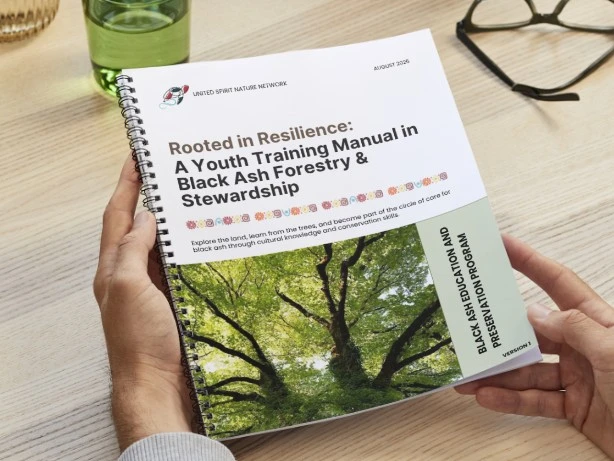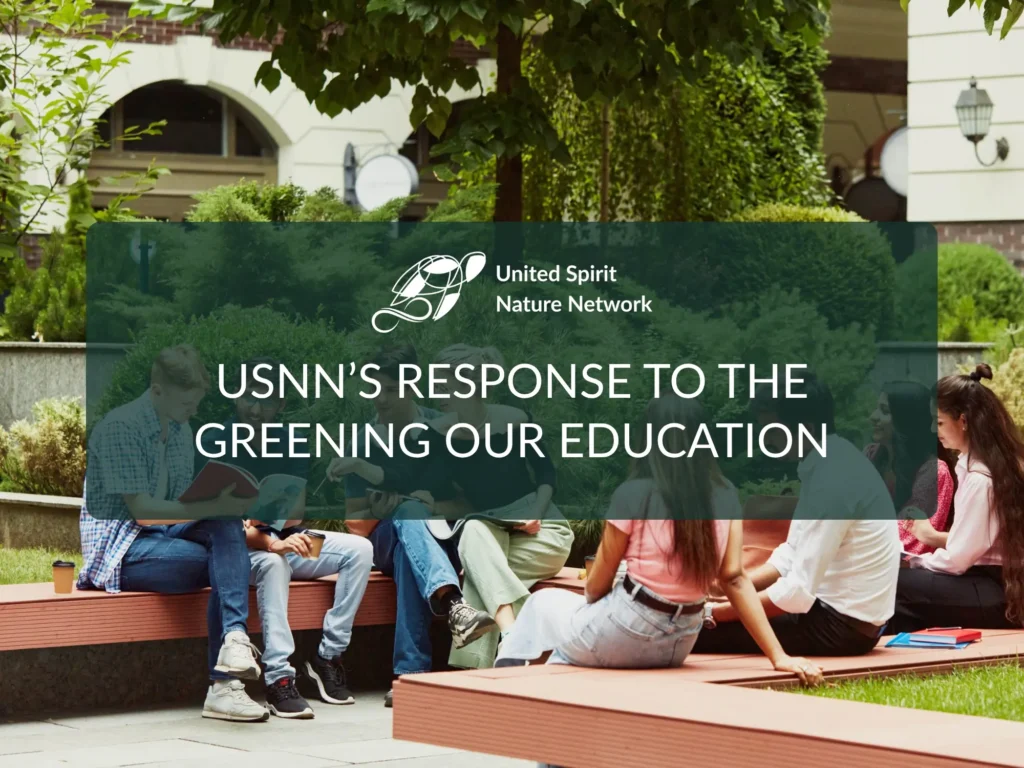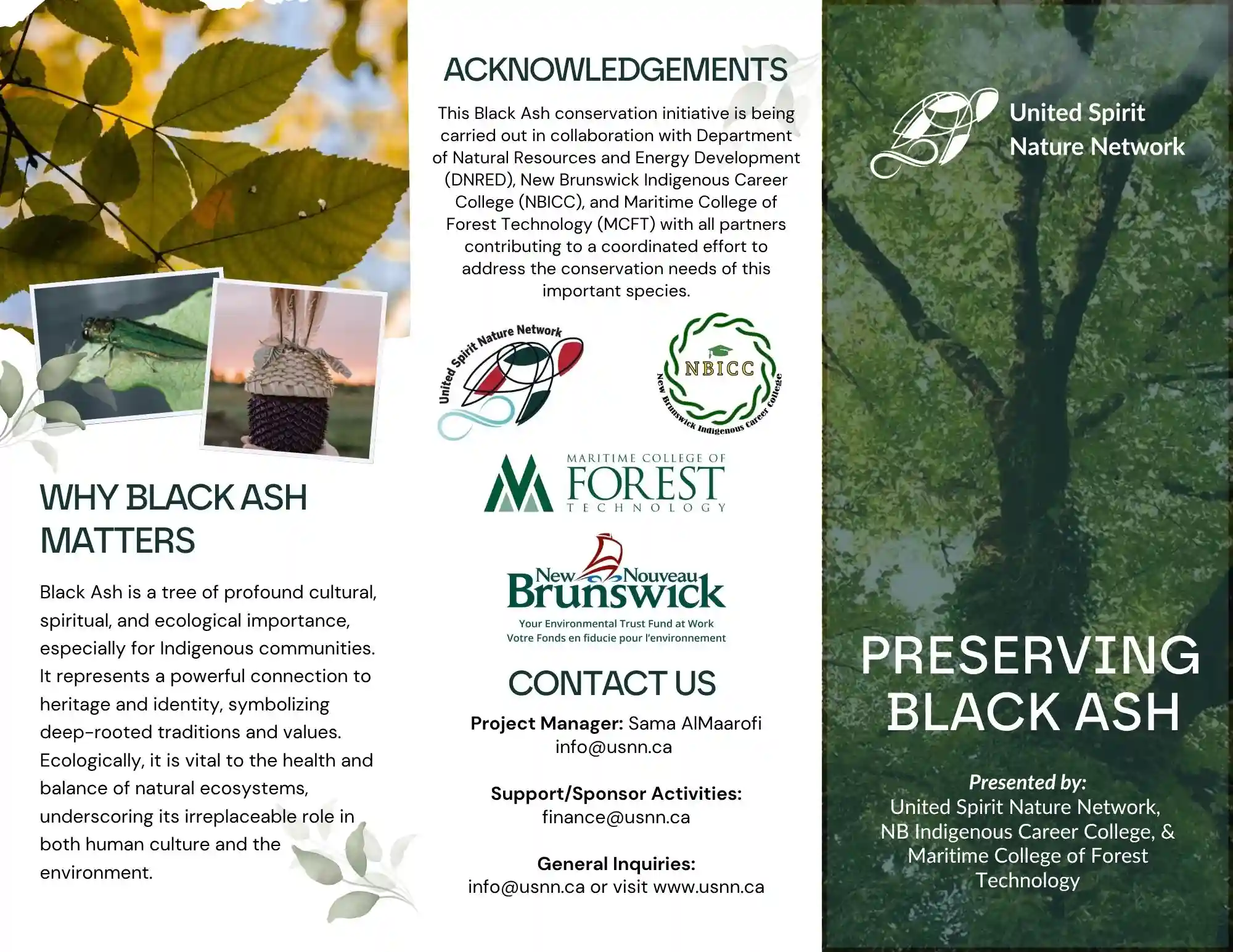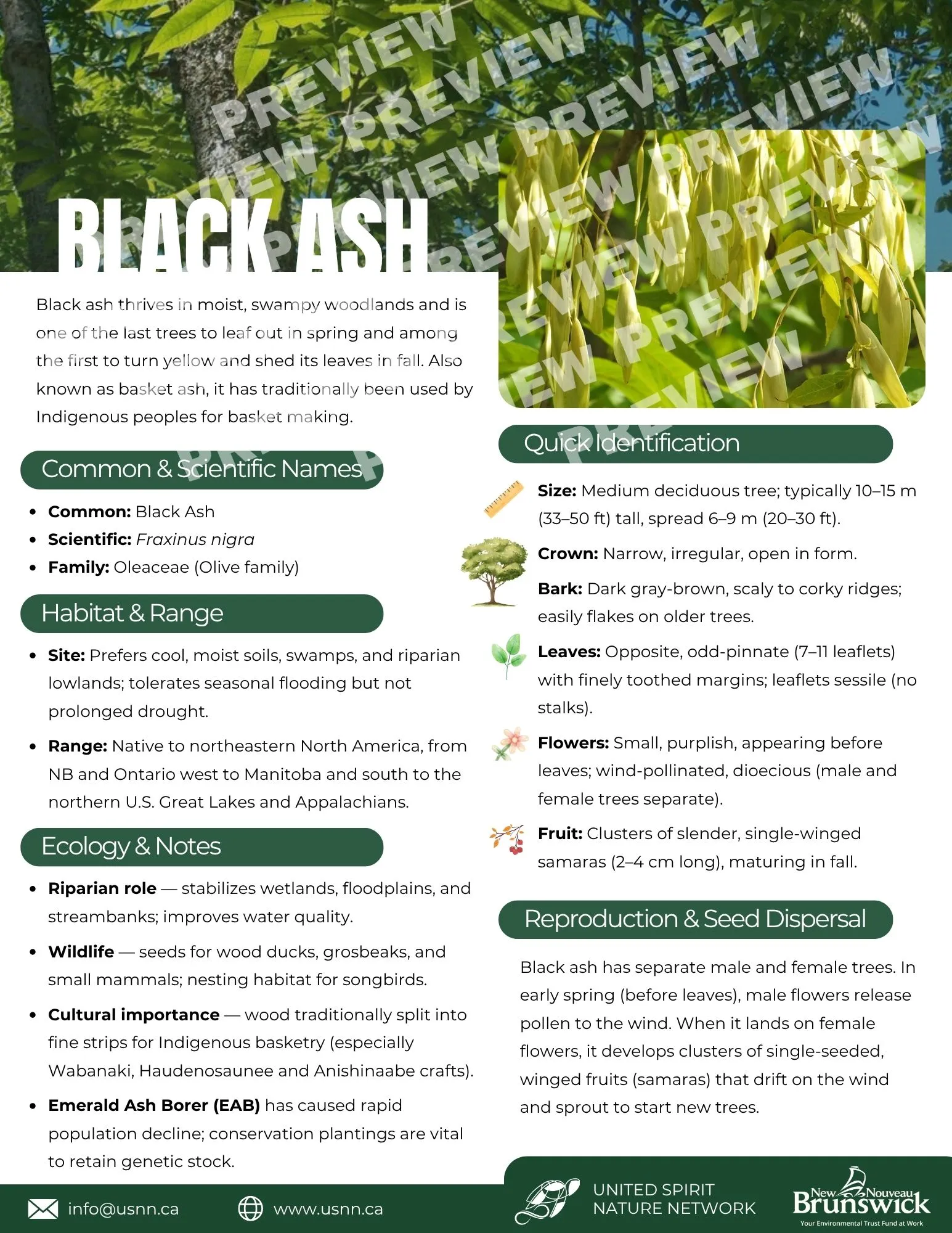Preserving Black Ash
Raising climate change awareness and protecting Black Ash ecosystems through community-driven conservation.
Culture, Climate, and Conservation
Black Ash (Fraxinus nigra) is vital to Indigenous cultural practices and New Brunswick’s wetland ecosystems—but it’s under threat from climate change, habitat loss, and invasive pests like the Emerald Ash Borer.
This initiative empowers communities, especially Indigenous groups, to protect Black Ash through mapping, habitat inventory, and conservation education—combining Traditional Ecological Knowledge and science.
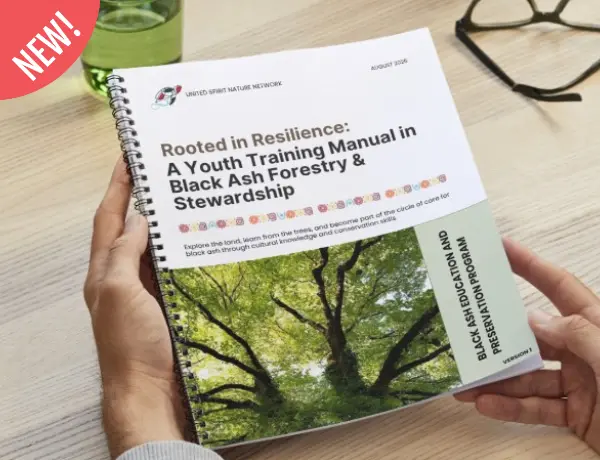
Download a preview of our Black Ash Training Manual and take your first steps into its cultural teachings, field skills, and conservation practices.

Emerald Ash Borer – A wood-boring beetle that has caused the death of millions of Ash trees across Canada and the United States. Originating from Eastern Asia, this forest pest exclusively targets Ash trees.

Black ash, known for its pliable splints, is crucial for weaving baskets.
Why Black Ash Conservation is Urgent

Anticipated Impact
This project will result in detailed habitat maps, trained community stewards, and stronger partnerships between Indigenous and non-Indigenous groups. It will raise awareness through education, equip participants with real-world conservation skills, and produce actionable plans to protect Black Ash and its ecosystems. Most importantly, it creates a replicable model for community-driven, culturally informed biodiversity conservation across New Brunswick and beyond.

Project Objectives
Events
Resources
Our Vision for the Future
Through this project, we aim to:
Acknowledging Our Supporters
With deep respect, we recognize the knowledge shared by Indigenous communities and the support of our conservation partners.

Frequently Asked Questions
Get Involved
Interested in partnering, or learning more? We’d love to hear from you and chat with you more about this amazing project. Feel free to email us or fill out the form and we'll get back to you!
Email: coordinator@usnn.ca

